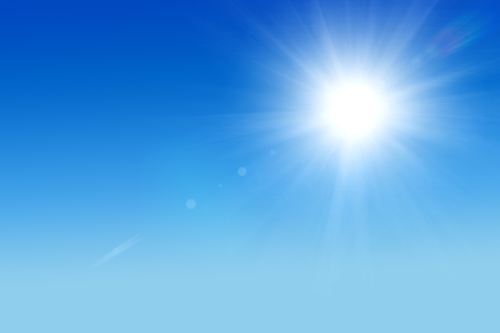As we age, our bodies begin to become more susceptible to a number of things it wouldn’t have when we were younger. We should always be on the
lookout for any hazards if and when we spend ample amounts of time outdoors, especially in the case of warmer weather. There are a great many potentially hazardous things in the environment for an elderly person, but for the sake of time, we’ll focus on just one, as that’s easier than making a laundry list of things to lookout for. That said, one of the deadliest hazards of the outdoors to the elderly, or indeed anyone, is heat stroke.
Heat stroke is the most serious heat-related illness, and it happens when the body suddenly becomes unable to control its own temperature. As temperature increases, the body loses its ability to sweat, thus, it cannot cool down as it should. Body temperatures can raise to 106 degrees Fahrenheit in as little as 10 to 15 minutes, and either death or permanent disability can happen if proper emergency treatment isn’t carried out as soon as possible.
Some of the warning signs and symptoms of heat stroke include:
- An extremely high temperature (above 103 degrees Fahrenheit)

- Red, hot, and dry skin (no sweating)
- Rapid, strong pulse
- Throbbing headache
- Dizziness
- Nausea
Heat Exhaustion
A milder form of heat-related illness that can be brought about from many days of exposure to high temperatures and inadequate or unbalanced replacement of fluids, heat exhaustion can be just as dangerous. The warning signs can include:
- Heavy sweating
- Paleness
- Muscle cramps
- Tiredness
- Weakness
- Dizziness
- Headache
- Nausea or vomiting
- Fainting
- Skin that’s cool and moist
- A fast and weak pulse rate
- Fast, shallow breathing
If you know of an older adult relative or neighbor, there are some things you can do to check on them and make sure that they are safe.
- Visit older adults at risk at least twice during the day and look out for signs of heat exhaustion or heat stroke.
- Encourage them to intake more fluids by drinking cool, non-alcoholic beverages, no matter the level of their activity. However, if the doctor normally limits the amount of fluid they drink or they are on water pills, they’ll need to ask their doctor how much they should drink in hot weather.
- Take them to air-conditioned locations if they have issues with transportation.
If you witness any signs of severe heat stress, you could be dealing with a life-threatening emergency. Have someone call for medical help at once while you attend to the affected individual. Here are some things you should do:
- Get the person to a shady area.
- Cool the person quickly, by using whatever methods you can. For instance, immerse them in a tub of cool water; put them in a cool shower; spray them with cool water from a hose, or if humidity is low, wrap them in a cool, wet sheet and fan the person vigorously.
- Monitor body temperature and continue cooling efforts until temperature drops to 101-102 degrees.
- If EMS is delayed, call the hospital emergency room for more instructions
- Do not give the person alcohol to drink.
- Get medical help ASAP.
If you or someone you love needs assistance with Elder Care law issues, call 856-281-3131. Let us help ease your stress and give you a plan.
